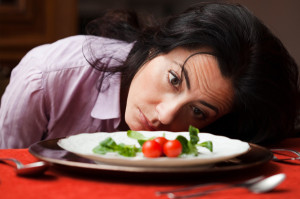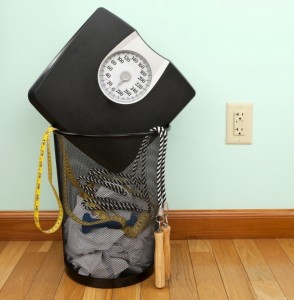 Holiday parties, gourmet meals, and celebratory dinners can easily get a little (or a lot) more decadent than you expected. Let’s face it: Everyone blows his or her calorie budget every now and then.
Holiday parties, gourmet meals, and celebratory dinners can easily get a little (or a lot) more decadent than you expected. Let’s face it: Everyone blows his or her calorie budget every now and then.
Diet 911: What to do after you’ve blown your calorie budget.
First Relax (For a Moment)
The good news is, one meal is not going to ruin you if you eat sensibly and exercise regularly the rest of the time and get back to your routine, experts say. You need to eat 3,500 calories to gain one pound of body fat, so it’s unlikely that a single overindulgence will show up on the scale. We call these ‘taking time-outs,’ and we all take them. No one is perfect in their eating habits. What we have to learn is that we are giving ourselves permission to do this, and as soon as it’s over, we should go back to the eating plan we normally follow. This does not give us permission to continue to overeat and binge.
The problem is, overeating is not a one-time affair. Most people overeat somewhere between 500 and 1,500 calories every single day. If they don’t consciously think about their dietary intake every day, they will be overweight.
 Don’t Beat Yourself Up
Don’t Beat Yourself Up
Too many dieters throw in the towel after a splurge. You may feel defeated and say, ‘Oh I blew my diet, and I’ll just eat the whole week/month/holiday season and the heck with it”. When you do overindulge, don’t be self-deprecating. If you overeat for one day; Don’t let it snow ball into a downward spiral that will really add up the pounds. Instead take charge, get back on track right away and decide to be more conscious of your portion sizes and decisions for the days that follow. This will teach you that you can take a “time out” and resume your healthy eating plan with out feeling “guilty” for enjoying yourself.
Think of Your Diet Over the Course of Several Days
It’s typical to eat more sensibly during the week and take in more calories on the weekend. So if you eat more calories than you should at a party, consider that one of your “weekend” days and compensate for it accordingly. In other words, just make sure that the days that come after that festive occasion reflect more of the structured Monday-through-Friday eating pattern, and maintain that pattern into the next weekend to make up for your calorie splurge during the week.
 Resume Sensible Eating
Resume Sensible Eating
You may be tempted to compensate for the extra calories by skipping meals the next day or by cutting too many calories from your diet. But skipping meals or cutting too many calories will only leave you hungry and at risk for pigging out later.
Cut back throughout the day with a series of small meals packed with fiber-rich fruits and vegetables:
- Have a light breakfast such as a bowl of low-fat yogurt and berries.
- Mid-morning snack: A piece of fruit and an ounce of low-fat cheese
- Lunch: A big salad with lean protein such as fish or chicken, or a whole-wheat pita pocket with lettuce and tuna or turkey
- Afternoon snack: A cup of vegetable soup and an orange
- Dinner: A piece of fish and plenty of vegetables
 Skip the Scale
Skip the Scale
After a feast, your weight is bound to be inflated. That’s not because of an increase in body fat, but because of water retention brought on by the excess salt you likely ate. Weighing yourself will only make you feel defeated. Wait after a week of being back on your sensible eating plan before you resume your weekly weigh ins. This will give your body time to get rid of any excess fluid retention and reflect a more accurate number.
Stick to Your Normal Exercise Routine
Compensating for the extra calories by over-exercising will leave you burned out or worse, if you overload and do more than your regular routine, you could strain a muscle, you could hurt a joint. Muscle soreness may set in into your third day, and you’re tight all over, then you can’t exercise at all or don’t want to, and you’re still feeling down because you overate, so it creates a vicious cycle.
 Track What You Eat
Track What You Eat
Setting a caloric goal for the day and recording what you eat keeps you conscious of what you’re eating. Don’t guess, most people under estimate how many calories they are actually eating every day. It is easy to forget the coffee creamer you added to your coffee or a couple handfuls of nuts you mindlessly popped into your mouth. The sure way to successfully calculate your calories is to be meticulous about your total calories by recording them. This also serves as a way to check if your diet reflects a more balanced eating pattern. You have to be conscious every time your hand goes from a plate to your mouth.


